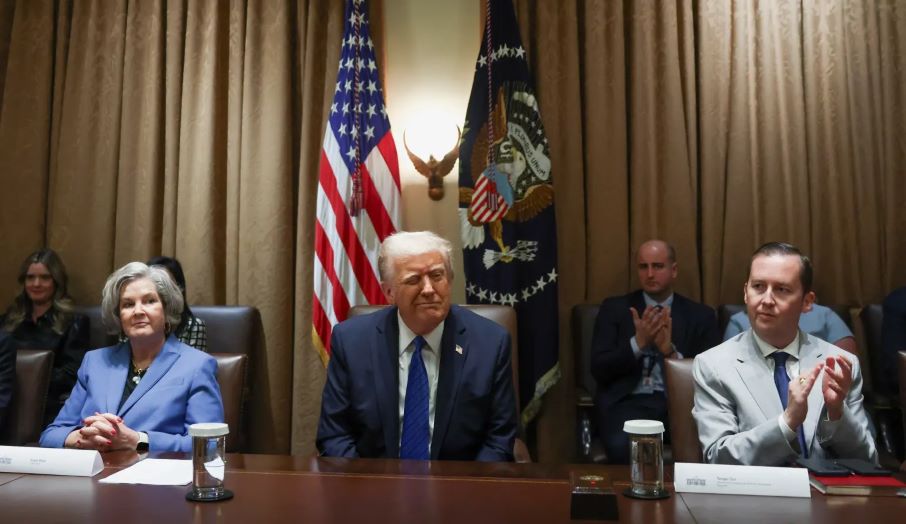Investigation: Top Trump aide may be a foreign agent
A growing political controversy is heating up in Washington, D.C. over the unclear origins and security status of Sergio Gor — one of the most powerful figures in Donald Trump's second administration and the man responsible for vetting thousands of federal appointees.
Gor, widely known among White House insiders as "Mr. Malta," currently serves as director of Presidential Personnel. In this role, he oversees the selection of roughly 4,000 staffers tasked with implementing President Trump’s agenda.
Yet despite this responsibility, multiple an investigation by The New York Post reveals that Gor – whose real name is Sergey Gorokhovsky (a Russian name) – has not submitted Standard Form 86 (SF-86), the mandatory background check required to obtain a permanent security clearance.
Hiding his birthplace
According to the report, Gor has declined to disclose his place of birth, even though the SF-86 form specifically asks for such details under penalty of perjury. While Gor identifies himself as Maltese, Maltese authorities reportedly found no birth records matching his name and birthdate.
More to read:
Trump’s tariff strategy rooted in fictional economist
He has only stated that he was not born in Russia, though critics point out that during the Soviet era, individuals born in Soviet republics could technically make that claim without revealing their specific birthplace.
Further complicating matters, The Shift News, a Maltese investigative outlet, reported that no official documentation exists in Malta’s public registry confirming Gor's birth on the island. Yet Gor is remembered in the Maltese town of Cospicua (Bormla), where locals recall him as a young boy who lived there with Eastern European parents in the late 1980s.
A resident interviewed by outlet said, “As soon as I saw Gor on TV recently, I was certain he was the same boy we called the ‘Russian boy’ in our neighborhood.”

Sergio Gor, right, attending a meeting with President Trump and government officials in 2025. Credit: NYPost
Despite his failure to file the SF-86, Gor currently holds an interim security clearance, which some Trump aides also possess while awaiting full clearance. However, White House insiders describe his refusal to submit the required paperwork as “highly unusual,” especially given the sensitive nature of his position.
Gor reportedly opposed the use of SF-86 forms during the transition, warning that the "deep state" could weaponize the process to block Trump’s appointees. One insider said Gor tried to persuade White House lawyers and senior staff that presidential authority alone could grant clearances, bypassing the standard vetting process.
The form itself is more than 100 pages long and includes detailed questions about foreign ties, past residences, family, financial connections, and potential security risks. Most White House officials submitted their forms before starting their roles.
Career in GOP
The White House maintains that Gor has now "completed" the form, though it remains unclear whether it has been officially submitted.
Gor’s influence in the Trump White House is vast, with the power to vet ambassadors and political appointees in high-ranking government jobs.
More to read:
Bannon is sure that Trump will hold on power beyond 2028
Gor’s ascent has also been financial. In 2021, he co-founded Winning Team Publishing, a conservative imprint, with Donald Trump Jr. The venture allowed him to purchase a lavish seven-bedroom mansion near Palm Beach in 2022, not far from Mar-a-Lago. He also owns property in Malta and visits regularly.
In past interviews, Gor has said he moved to the U.S. from Malta in 1999 at age 12. He attended high school in suburban Los Angeles and later graduated from George Washington University. Before joining the Trump administration, he worked with the Republican National Committee and several GOP lawmakers.
Still, the mystery surrounding his background — and his resistance to standard vetting — continues to raise concerns among government officials and watchdogs, who are growing suspicious that Gor may be a foreign agent in the heart of the U.S. government.
Dormant agents
The Soviet Union — and later, Russia — has a long history of planting "illegals" or deep-cover intelligence agents in foreign countries, a practice largely overseen by the KGB during the Soviet era and continued by its successor agencies, such as the SVR (Foreign Intelligence Service) and sometimes the GRU (military intelligence).
More to read:
Trump is accused of insider trading and market manipulation amid tariff reversal controversy
One particularly sophisticated and patient tactic has been to plant agents from early childhood or raise them abroad so that they blend in perfectly with the local population. A person raised in the target country is much less likely to attract suspicion than a recent immigrant.
They operate under a false identity — often without diplomatic cover, meaning they have no legal immunity and are vulnerable to arrest if discovered. The goal is to embed them so deeply into the society that they are indistinguishable from ordinary citizens.
These individuals can live normal lives — attending university, getting jobs, marrying — until the intelligence agency decides to "activate" them.
Declassified KGB files suggest the use of agents who were raised in neutral countries like Switzerland, Malta, or even the U.S., especially during the Cold War.







